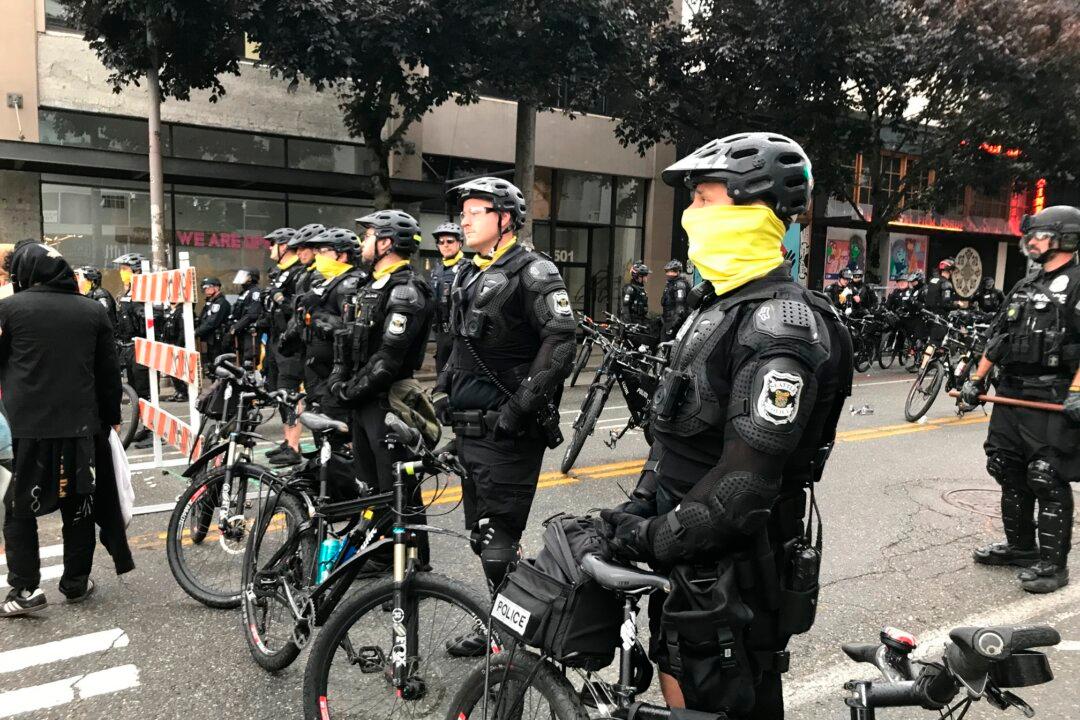Seattle workers cleared the so-called autonomous zone on July 1 after tolerating the occupation for weeks.
Police officers equipped with protective gear began clearing tents and barricades at the zone in the Capitol Hill neighborhood, arresting at least 32 people for failure to disperse, obstruction, resisting arrest, and assault.





